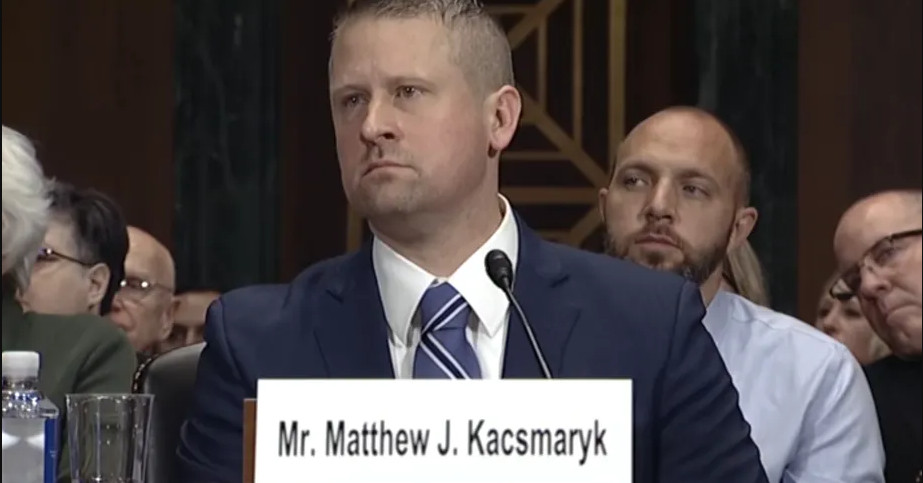The federal judiciary’s new rules target “judge shopping.” That’s terrible news for Matthew Kacsmaryk and other partisan judges.
Plaintiffs hoping to reshape federal or state policies will no longer be allowed to choose which judge will hear their case, at least in federal court. A new policy announced Tuesday by the Judicial Conference of the United States, a government body that sets policy for federal courts, targets rules in some federal courts that the conference said “risked creating an appearance of ‘judge shopping.’”
At least in the short term, this policy is a massive victory for the Biden administration — and, indeed, for anyone who believes that federal and state policies should not rise and fall based on one outlier judge’s partisan views.
Texas’s Republican Attorney General Ken Paxton, for example, has been very aggressive in bringing lawsuits that challenge Biden administration policies before right-wing judges who have then issued sweeping, nationwide orders blocking those policies — sometimes on highly dubious grounds that are reversed, months later, by the Supreme Court.



The issue is that the federal courts are divided into circuits, and each circuit handles cases from multiple states. So there’s not a single centralized federal court (except the SCOTUS, of course.) And the fifth circuit is basically balls to the wall crazy conservative. So if you can get your trial heard by the fifth circuit, it will land in front of a wildly conservative judge who won’t even try to maintain the image of impartiality.
The fifth circuit just so happens to take cases from Texas, Louisiana, and Mississippi. This means that the two extremely conservative states (Texas and Mississippi) have been able to leverage the court to challenge pretty much any left-leaning laws they want.
The fifth circuit courts can’t override the SCOTUS or go against any precedents set by higher courts. But if they’re hearing fresh arguments on new laws with no settled precedent, then they have first crack at setting the precedent. And if you’re in the fifth circuit, they will set an extremely conservative precedent. And that forces lower courts to follow them, unless it gets overruled by the SCOTUS.
So basically, let’s say you’re a conservative and Biden just enacted a law you don’t like. You sue in Texas, landing you in the fifth circuit. The fifth circuit rules in your favor. Then the SCOTUS refuses to take the appeal, (because they’re busy and this particular law isn’t worth their time,) meaning the fifth circuit precedent stands. Now the law is effectively nullified in the entire country, without even being ruled on by the SCOTUS.
There are other similar examples, but the fifth circuit is the most widely known. For instance, there’s a judge in east Texas who had historically been very friendly to patent trolls. So if you’re a patent troll with a bogus patent that never should have been granted, and you’re looking to sue a company for infringement, you’d sue in east Texas. Because any other court would throw your case out and nullify your patent. But that one particular judge is friendly, and he’s the only one in the area (because east Texas is extremely rural, and doesn’t have enough population to support more than one judge,) so you know you’ll get a friendly judge.